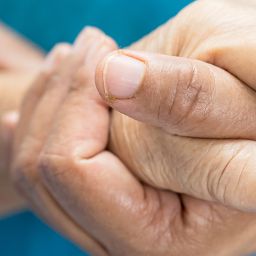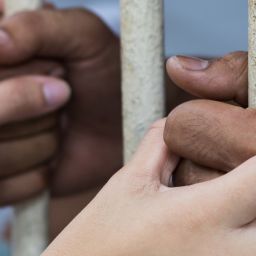Life throws curveballs, and sometimes those curveballs can knock us off our housing game. Perhaps you’ve experienced job loss, a personal crisis, or even escaped an unhealthy living situation. Whatever the reason, if you find yourself in need of temporary housing, transitional housing programs can be a lifesaver. But did you know that transitional housing, also known as supportive housing, can have a profound impact on your mental health? It’s true! With the right support structures in place, transitional housing can significantly bolster mental health.
Understanding Transitional Housing And The Importance of Mental Well-Being
Transitional housing steps in to offer a hand when life gets bumpy, providing both temporary shelter and essential support for folks grappling with homelessness or housing uncertainty. Unlike emergency shelters that offer brief stays, these programs aim to build stability and self-sufficiency through structured aid.
Now, mental health—it’s the cornerstone of our well-being, touching every part of our lives, from our emotions to our social connections. For those navigating housing insecurity, mental health hurdles can pile on, making it even trickier to find and keep a stable place to call home.
Let’s explore five key ways transitional housing can not only help you regain financial stability but also enhance your mental health and overall well-being.
1. Establishing Stability and Routine
A. Providing a stable environment
Transitional housing offers a stable living environment, providing individuals with a sense of security and predictability. Having a safe place to call home reduces the uncertainty and instability that often accompany homelessness, allowing residents to focus on rebuilding their lives.
B. Reducing stress and anxiety
Stress and anxiety are common experiences among those facing housing instability. Transitional housing addresses these issues by offering a supportive environment where individuals can regain a sense of control over their lives. With their basic needs met, residents can better manage their mental health and work toward long-term stability.
2. Building A Supportive Community
A. Building connections
Do you know how important it is to feel like you’re not alone, especially when you’re going through tough times? Well, transitional housing really gets that. It’s all about building connections and forming a little community where everyone gets each other. They organize stuff like group activities and shared meals to bring folks together. This offers the support and encouragement we all need.
B. Emotional support
Let’s talk about something real here. Dealing with homelessness or not having a stable place to live? It’s rough. Emotionally draining, you know? But here’s the thing: transitional housing programs are there to lend a hand. They’ve got counselors and support groups, all aimed at helping you deal with those feelings and come out stronger on the other side.
3. Access to Resources
A. Mental Health Services
You know, mental health is a big deal, right? Well, lots of transitional housing programs get that. They offer stuff like therapy, counseling, and even psychiatric care to help folks deal with what they’re going through. It’s all about tackling those mental health issues head-on, so people can start healing and moving forward, surrounded by support.
B. Job Training And Education
Transitional housing programs often provide resources for skill-building and education, empowering residents to pursue employment and educational opportunities. By gaining new skills and knowledge, individuals can increase their self-confidence and improve their prospects for long-term stability.
4. Skill-Building and Empowerment
A. Building self-esteem
Transitional housing is like a stepping stone. It’s all about getting folks to take charge of their own journey towards recovery. They’re encouraged to be independent, to rely on themselves. And when do they start hitting those milestones and tackling those obstacles? Boom! Confidence shoots up, and self-esteem skyrockets. It’s all about believing in yourself.
B. Developing life skills
From budgeting and time management to conflict resolution and communication skills, transitional housing programs offer opportunities for residents to develop essential life skills. By equipping individuals with the tools they need to succeed, these programs empower them to live independently and thrive.
5. Sense of Purpose
A. Setting goals
So, you know how transitional housing is all about helping folks get back on their feet, right? Well, part of that journey is about setting some personal goals and going after them. Whether it’s finding a stable place to live, snagging a job, or reconnecting with family, having something to aim for really keeps people motivated through the ups and downs.
B. Finding meaning
Transitional housing isn’t just about having a roof over your head; it’s like a space where you can figure things out. People get to dive into what they love, explore new interests, and find that spark that makes life worth living. It’s all about finding meaning. And when you’re doing stuff that fills you up inside, it makes the whole journey to recovery and stability a bit smoother.
Success Stories: Transforming Lives Through Transitional Housing
Seeking Professional Help?
Do you or someone you care about require assistance with transitional housing or mental health support? Our Baltimore-based rehab center is here to provide guidance, resources, and compassionate care. Reach out to us today for help navigating your journey towards stability and well-being.
Conclusion
So, wrapping it up, transitional housing is like the unsung hero of mental health improvement. It’s all about giving people a solid ground to stand on, surrounded by folks who’ve got their backs, access to all the stuff they need to thrive, plus a chance to learn and grow stronger. And you know what? With these kinds of programs in play, we’re not just talking about short-term fixes; we’re talking about setting up folks for some seriously bright futures and happier, healthier minds. It’s like a domino effect of positivity, one step at a time, changing lives along the way.














